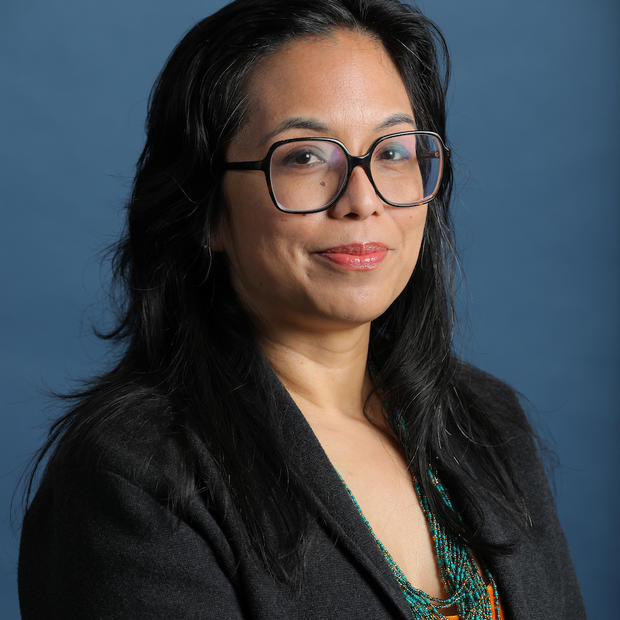Basler is challenging incumbent King County Elections Director Julie Wise, a longtime elections worker who has been running the office since 2016 and who has overseen the expansion of ballot boxes and language access for elections materials during her time in office.
Basler’s platform questions the security and integrity of King County Elections, and he advocates for reforms including going “back to paper ballots hand counted at the precinct level on election day.” He also calls for “citizen oversight and balanced audits of our systems and processes so that everyone is confident that our elections are free, fair, and verified.”
Basler’s campaign video calling into question the integrity of the 2020 elections, as well as his other campaign statements, echo what some observers are recently calling “election denial” – sowing doubt about U.S. elections through claims of fraud and vote insecurity, and suggesting that errors are systemic problems.
Basler also joined the Washington Election Integrity Coalition United in a 2021 lawsuit against Wise and King County Elections. The group, which has filed multiple lawsuits in the state, questions the chain of custody of mail-in ballots and the security of the computerized tabulation systems. It is calling for the return of in-person voting in Washington state.
Wise has worked for King County Elections since 2000, rising to deputy director before she was elected director in 2015. Under her tenure, the county has increased the number of ballot drop boxes from 10 to more than 70 and expanded the number of languages available for election materials. Under Wise, King County also became the first in Washington to offer prepaid postage on its mail-in ballots, prompting the state to follow suit and pay for postage for ballots for the rest of the counties.
Basler has run for office numerous times as a Republican, including five bids for Congress challenging Rep. Adam Smith, the Democrat representing the 9th Congressional District.
Wise, who says she is strictly nonpartisan, has won the seat with more than 70% of the vote both times she’s run. The seat is nonpartisan.
While he seems like a longshot candidate, Basler’s message is resonating with many. He has raised at least $24,000 in contributions compared to Wise’s $5,000, according to the latest figures from the state Public Disclosure Commission. They have both spent under $4,500 on their campaigns so far.
While Basler has not responded to Crosscut’s attempts to reach him for this article, he did respond to Crosscut’s voter guide, saying his major priorities will be combating voter apathy and following the law, which he says Wise’s administration has not done.
Wise, who did not respond to Crosscut’s voter guide, told Crosscut in an interview that among her priorities is removing barriers to voting and increasing access, which she says has resulted in rising turnout in King County.
She said her main focus for the next four years would be to use her experience to ensure smoothly running elections, including the new implementation of ranked-choice voting in Seattle. She said voter engagement and education are also top priorities, as are the security of ballots and the safety of voters and election workers.
In the past few years, Wise said she and her staff have faced physical and verbal threats from people who mistrust the handling of elections.
And while mistrust of the system is nothing new, it was elevated to the national level when President Donald Trump baselessly blamed his 2020 loss on rigged elections.
According to the national group States United Democracy Center – a group which focuses on election denial and election security – 17 states now have a statewide officeholder in charge of elections who are “election deniers,” which the group defines as those who have taken or supported actions questioning or attempting to block the outcome of the 2020 or subsequent elections.
Here in Washington, gubernatorial candidate Loren Culp also blamed his 2020 loss to Gov. Jay Inslee on voting “anomalies” and tried to sue the state. Culp’s lawsuit was withdrawn, but his attorney, Stephen W. Pidgeon, who filed the suit, had his law license pulled for one year for making a “frivolous” claim.
The group Washington Election Integrity Coalition United also has made a number of filings, calling into question various aspects of the state election process.
In the lawsuit against Wise and King County Elections, Basler and the group claimed that the county should have turned over images of ballots and ballot envelopes as part of a public disclosure request. The elections office declined to provide images – although it had offered to turn over images of envelopes that had been redacted of personal information – or allow the coalition to inspect the envelopes in person. King County Superior Court sided with the county earlier this year, ruling that the records requested were exempt from public disclosure laws. The group filed an appeal that is pending, according to court records.
Though no claim of widespread voter fraud has been proven, mistrust in elections lingers. According to a Monmouth University poll released in June, about 30% nationwide believe fraud was involved in the election of President Joe Biden, despite a lack of evidence.
Among Republicans, doubt in the 2020 election more than doubled, to 68%. That level of election mistrust has remained about the same for the two years that Monmouth has polled for that question.
While election denial is a minority view, at least one county election official is now in office after running on reforms based on the claims associated with those who continue to raise doubts.
KING-TV reported that Mason County Auditor Steve Duenkel – who rejected the term “election denier” as derogatory – narrowly defeated a longtime incumbent last year. Duenkel told the TV station that he supported citizen efforts to canvas the voter rolls and had been concerned about the chain of custody of ballots, but wouldn’t tell the TV station whether Donald Trump lost the 2020 election.
This year, in Snohomish County, former state legislator Robert Sutherland, who continues to claim there were “irregularities” in the 2020 election, ran in the primary against incumbent Auditor Garth Fell. Fell and challenger Cindy Gobel, both longtime elections officials, kept Sutherland out of the general election, although he got 26.8% of the vote.
And while those who mistrust elections are not in the majority, researchers say those beliefs tend to remain ingrained for those who already mistrust the system.
“There may not be many people who believe them, but the people who do believe them very much believe them and are willing to kind of support people who believe these things,” said Morgan Wack, a Clemson University political scientist who also is part of the University of Washington Center for an Informed Public.
While it’s unclear whether there’s more or less mistrust in elections systems currently than in the past, what seems to have increased is the willingness of candidates to speak openly on the topic.
“We’ve seen it become less of a disqualifying norm, not just in the United States but in places like Brazil … and other places outside the U.S. because it’s been shown in recent years to not necessarily hurt your viability as a candidate as much as it would have, or was perceived to have, in the past,” Wack said.
And while Wack said it’s hard to counter each point of doubt because elections in the United States are run by hundreds of different entities, he said there are some things that elections officials could do better.
“It’s definitely, I think – if we’re looking optimistically – been a call to improve how we present democratic institutions and helping people to invest in understanding how these things work,” Wack said. “And the need to be more transparent to show people, yes, mistakes happen. But here’s how they happen. Here’s why they happen. It’s not some sort of conspiracy.”
Wack added that being transparent and explaining systems to the public is one way of limiting the uncertainty that can cause conspiracies to proliferate.
In King County, Wise said that the department tries to counter skepticism by having cameras overseeing all parts of the ballot-counting process. To reassure people of ballot security, the ballot boxes have been built like “steel tanks.”
Wise also hopes to implement a ballot alert system, so a voter is notified when their own ballot has been sent to them in the mail and when it’s been received and tabulated by the county.
“Those are all security points, and also things that I think that we really need to be innovative in government and in elections,” Wise said.
“Our mission of running the most inclusive elections in the country is the right sort of compass-marker for us, and that we are going to be unabashed – we are going to be brazen – in removing barriers, and therefore increasing access. And we’re not going to undermine the security of the elections,” she said.




